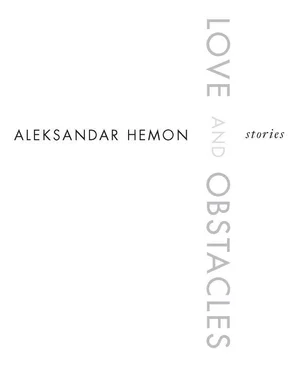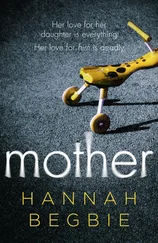Aleksandar Hemon - Love and Obstacles
Здесь есть возможность читать онлайн «Aleksandar Hemon - Love and Obstacles» весь текст электронной книги совершенно бесплатно (целиком полную версию без сокращений). В некоторых случаях можно слушать аудио, скачать через торрент в формате fb2 и присутствует краткое содержание. Издательство: Penguin USA, Inc., Жанр: Старинная литература, на английском языке. Описание произведения, (предисловие) а так же отзывы посетителей доступны на портале библиотеки ЛибКат.
- Название:Love and Obstacles
- Автор:
- Издательство:Penguin USA, Inc.
- Жанр:
- Год:неизвестен
- ISBN:нет данных
- Рейтинг книги:5 / 5. Голосов: 1
-
Избранное:Добавить в избранное
- Отзывы:
-
Ваша оценка:
- 100
- 1
- 2
- 3
- 4
- 5
Love and Obstacles: краткое содержание, описание и аннотация
Предлагаем к чтению аннотацию, описание, краткое содержание или предисловие (зависит от того, что написал сам автор книги «Love and Obstacles»). Если вы не нашли необходимую информацию о книге — напишите в комментариях, мы постараемся отыскать её.
Love and Obstacles — читать онлайн бесплатно полную книгу (весь текст) целиком
Ниже представлен текст книги, разбитый по страницам. Система сохранения места последней прочитанной страницы, позволяет с удобством читать онлайн бесплатно книгу «Love and Obstacles», без необходимости каждый раз заново искать на чём Вы остановились. Поставьте закладку, и сможете в любой момент перейти на страницу, на которой закончили чтение.
Интервал:
Закладка:
I remember all this, even if I didn’t write it down, because I spent an eternity waiting for the Americans to complete their check-in. I began imagining a conversation I would have with the woman, should we happen to share an elevator ride, while her unseemly husband was safely locked up somewhere in a distant reality. In my high school English, I would tell her that I liked her face flushed with pilgrimage, that I wanted to hold the summer dawn in my arms. We would stagger, embracing, to her room, where we wouldn’t even make it to the bed, et cetera. Her name, I chose, was Elizabeth.
“Thank you,” she finally said, and stepped away from the desk, her husband closely following her, as though blind.
“You’re welcome,” Franc said to their backs.
He had no interest in me, for I presented no challenge: he could speak Slovenian to me and not care whether I understood (I did); he could easily disregard any of my pipsqueak demands (he did). He took my ID and money, and gave me in return a large key attached to a wooden pear with “504” carved in it.
Elizabeth and her husband were still waiting for the elevator, talking in whispers. They glanced at me and did what Americans do when they make unnecessary, unwanted eye contact: they raise their eyebrows, roll their lips inward, and brighten up their face so it can bespeak innocent indifference. I said nothing, nor did I smile. On the pear that Elizabeth held I saw the number of their room, 505, and so when they stepped out, I followed them. My room was directly across from theirs, and as we entered our respective rooms, Elizabeth turned toward me and flashed a splendid smile.
It was in Murska Sobota that I truly confronted the ineluctable sadness of hotel rooms: a psyche with a notepad nobody had ever used to write; the bed cover with infernally purple flowers; a black-and-white picture of a soulless seaside resort; a garbage basket lined with crumpled paper tissues suggesting a messy quickie. The window looked over a concrete garage roof, in the middle of which was a vast puddle, shimmering like a desert-lake mirage. There was no way I was going to spend a night alone in this cave of sorrow. I needed to find places with a high density of youth, where comely Slovenian girls stood in clusters, steadily rejecting the clumsy advances of Slovenian boys, conserving their maidenhead for a pill-carrying Sarajevo boy, his body a treasure to squander.
The main street appeared to have been recently depopulated; only an occasional empty bus drove by, the lights in it dimmed. There were no cafés or bars or young people I could scout, only the windows of closed stores: stiffened mannequins, their arms opened in an obscure gesture of welcome; towers of concentric pots looming over families of pans; single shoes lined up closely on a rack, so different in sizes and shapes that each one of them seemed to represent a missing person. And there was the store I was to visit the next day to purchase for my family an entry into an abundant future. In the window, a humongous freezer chest glowed as if in a heavenly commercial.
I decided to explore the side streets and found nothing but a slumbering row of houses, the nightmarish murmur of television sets passing through a thousand quiet windows. Here and there, the sky was stained with stars. A neon sign in the distance announced the name of a bar called Bar, and there I went.
There was nobody in Bar except for a bearded, frog-faced man, whose chin was about to touch the brim of his beer stein, and a cloud of smoke hanging thick as a ghost. Without lifting his head, the man looked at me intently, as though he had been expecting me to arrive with a message of some sort. Message I had none, so I sat as far away from him as possible, close to the bar attended by nobody I could see. I lit a cigarette, determined to wait for female beauty to walk in.
The man lit up a cigarette too; he exhaled as though letting his soul out. I began thinking up a poem in which the main character walked into a bar as empty as this one, smoked and drank alone, thinking up wisecracks, and then, when he wanted to order another beer, discovered that the bartender was dead, slumped in a chair behind the bar, his left hand reaching for a stein of still-foaming beer. I had left my notebook in the hotel, so I could not write the poem down, but I kept thinking about it, kept coming up with rhymes, kept drinking my beer, kept not looking at the man. Most human lives perish without other people’s ever noticing, and I recognized that it could happen to me too, tonight. They would find an uncomfortable corpse with a stack of cash and a mysterious pill and they would ask themselves: Where were we when he needed us? Why didn’t we deflower him before he perished?
The man stood up and tottered toward me. The shoulders of his jacket almost reached his elbows, as though he had shrunk abruptly; a purple tie grew out of his shirt; he wore a little hat with a mangy feather stuck in its ribbon. He sat right across from me, mumbling a greeting. In the center of plum-colored circles his eyelids moved slowly, as though he was deciding each time whether to open his eyes at all. I turned back toward the bar, pretending to be looking for a bartender. The man grumbled and gibbered, pointing toward the bar, and I nodded understandingly. The sounds gradually attained the shape of complete sentences, punctuated by an occasional snort or a hand slamming the table. I could not figure out whether he was pissed or glad about my presence in his lair.
A waitress planted two large, foaming steins between us. She put a hand on my shoulder warmly, asking apparently if I was okay. She was voluminous, her face seemed upholstered, her biceps doughy; she smelled of cakes and cookies. The drunk raised his stein and held it in front of me for a cin-cin until I complied. We drank and wiped foam off our lips with the back of our hands. He sighed in approval; I exhaled; we drank in silence and smoked.
More beer came. The man decided to open up to me: he leaned forward and back, he waved his hands in unintelligible derision, he pointed his finger in various directions, and then he started crying, tears streaming down his cheeks webbed with capillaries.
“Everything is okay,” I said. “Everything will be fine.” But he just shook his head, as there seemed to be no hope or relief. The waitress came over, unloaded more beer, and wiped his face with her dishrag; she appeared to be used to cleaning his tear-crusted cheeks. The man’s tie was wet with tears; the beer parlor was dark and empty; I was drunk, muttering occasionally: “Everything will be fine.” The waitress listlessly wiped glasses behind the bar; time passed in silence. What will become of the world when you leave? Rimbaud wrote. No matter what happens, no trace of now will remain. Then I started crying too.
I did not know how long it had all gone on, but when I left Bar, my sleeve was wet with tears and snot. I could recall the waitress wiping my face at least once with her rag stinking of rancid dishwater. I gave her what seemed to me a large chunk of the freezer-chest money and she locked the door behind me. The man stayed behind, his head carefully deposited on the clearing in the forest of steins—he probably lived there. And as I stepped out on the vacant streets of Murska Sobota, a wave of euphoria surged through me. This was experience : I had possibly lost my head and experienced a spontaneous outpouring of strong emotion; I had just drunk with a disgusting stranger, as Rimbaud surely did in Paris once upon a time; I had just said Fuck the fuck off to the responsible life my parents had in store for me; I had just spent time in the underworld of Murska Sobota and come out soaked with sweat and tears; I had a magic pill in my pocket. I needed somebody to love me tonight.
Читать дальшеИнтервал:
Закладка:
Похожие книги на «Love and Obstacles»
Представляем Вашему вниманию похожие книги на «Love and Obstacles» списком для выбора. Мы отобрали схожую по названию и смыслу литературу в надежде предоставить читателям больше вариантов отыскать новые, интересные, ещё непрочитанные произведения.
Обсуждение, отзывы о книге «Love and Obstacles» и просто собственные мнения читателей. Оставьте ваши комментарии, напишите, что Вы думаете о произведении, его смысле или главных героях. Укажите что конкретно понравилось, а что нет, и почему Вы так считаете.












